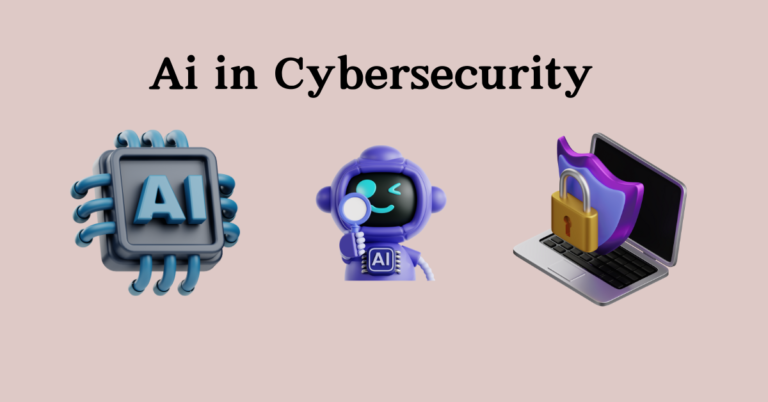Introduction
Imagine you have a massive puzzle, like a giant maze, and your goal is to find the way out. A regular computer tries one path at a time, checking if it’s the right way. But quantum computing is like a super-powered solver that can check all paths at once. This ability makes quantum computers incredibly fast and smart, allowing them to solve really hard problems that our normal computers can’t handle.

What is Quantum Computing?
To understand quantum computing, let’s first think about how regular computers work. Imagine a series of light switches. Each switch can be either on (1) or off (0). These switches, called bits, are the basic building blocks of regular computers. A computer solves problems by flipping these switches on and off in different patterns.
But a quantum computer works with something much cooler called qubits. Unlike regular bits, qubits don’t just have to be on or off. They can be both on and off at the same time! This special trick is called superposition. Because qubits can be in two states at once, quantum computers can think about many possibilities all at the same time.
A Simple Example of Superposition
Imagine holding a coin. Normally, if you flip it, it lands as either heads or tails. But in the world of quantum computers, it’s like the coin is flipping and staying both heads and tails at the same time—until you look at it! That’s superposition. It’s like having superpowers to think of more than one possibility at once.
Why is Quantum Computing So Special?
Now, you might wonder, why is it such a big deal that qubits can be in two states at once. Well, it’s because this lets quantum computers solve very difficult problems much, much faster than regular computers. Here’s where it gets exciting:
Faster Problem Solving
Let’s go back to our maze example. Imagine you’re trying to solve a really big and complicated maze. A regular computer would have to go down one path, hit a dead end, turn around, and try another path, one by one. This takes a long time. But a quantum computer? It can explore all the paths at the same time! It’s like having a superpower that allows you to finish the maze in no time.
Discovering New Medicines
Quantum computers can also help scientists study how medicines work. Right now, it can take years to figure out the right combination of molecules for a new medicine. But with quantum computing, scientists can study how these molecules interact much faster, speeding up the discovery of life-saving treatments.
Predicting the Weather

The weather is complicated, and predicting it accurately requires looking at many different factors. Quantum computers can handle all of these factors at once, allowing for more precise weather forecasts. This could help us better prepare for storms, droughts, and even climate change.
How Does Quantum Computing Work?
So, how exactly does a quantum computer work? It all comes down to superposition and another cool thing called entanglement.
Superposition in Quantum Computing

As we discussed earlier, qubits can be both 0 and 1 at the same time. Imagine you’re trying to guess the correct number for a lock. A regular computer would try one number after another. But a quantum computer could try all possible numbers at once, unlocking the lock almost instantly. This is the power of superposition.
Entanglement in Quantum Computing
Now, let’s add entanglement into the mix. Entanglement is like a magical connection between two qubits.

When qubits are entangled, changing one instantly affects the other, even if they are far apart. It’s like having two superheroes on opposite sides of the world who know exactly what the other is thinking. This instant connection lets quantum computers solve problems even faster because entangled qubits can work together in perfect harmony, no matter the distance between them.
Real-life Applications of Quantum Computing
Let’s look at a few more examples to understand how quantum computing could change the world.
Better Security
Today, we use special codes to keep our information safe online. These codes are really hard to break because they rely on math problems that are tough for normal computers to solve.

However, a quantum computer could solve these problems in seconds, which could make current security systems outdated. But don’t worry! Scientists are also working on quantum cryptography, which will create super-secure ways to protect our data.
Improving AI (Artificial Intelligence)
Artificial Intelligence is getting smarter every day, but it still has limits. Quantum computers could help AI systems learn and make decisions much faster by analyzing huge amounts of data all at once. This could lead to big advancements in how AI is used for things like medical diagnosis, self-driving cars, and even robots that can understand emotions.
Solving Big Scientific Problems

Quantum computing could aid scientists in solving extremely large problems that would take centuries to be solved on classical dying computers right from understanding the workings of the universe to the new forms of energy. For instance, quantum computers can simulate internal processes in stars or work to discover better methods of producing clean energy.
Challenges in Quantum Computing
Even though quantum computers sound amazing, there are still some challenges.
Sensitive to the Environment
Quantum computers are very fragile, that is, they are sensitive to any input signals arriving at them. The errors can be produced by even the slightest disturbance, such as a vibration or change in temperature. “Consider it like trying to keep a pencil erect from falling as it only requires a little nudge!”. Researchers have been focusing on how to develop quantum computers that are less likely to err.
Building Bigger Quantum Computers
Right now, most quantum computers only have a small number of qubits. To solve big problems, we need many more qubits working together. However, building large-scale quantum computers is hard and expensive. It’s like trying to build the world’s tallest tower out of the world’s most fragile blocks.
The Future of Quantum Computing
However, the prospects of quantum computing look quite encouraging. In addition, the researchers and scientists are working on the improvement of technologies to optimize the quantum computing machines. It may be only a decade or two from now when quantum computers will be doing things that even normal computers have yet to dream of solving.
A Quantum Revolution
Similar to how conventional computers have revolutionized the world and paved the way for the eventualities of smartphones, the internet, and video games, quantum computers will again revolutionize societies. Essentially they could rewire everything from the way we receive treatment, to the means of transport, even the way we converse.
What Can We Expect?
Faster medical discoveries
Imagine finding cures for diseases like cancer in just a few days, thanks to quantum computers.
Smarter technology
AI systems that understand us better, robots that can help around the house, and self-driving cars that are safer and more reliable.
Better predictions
From predicting the weather to figuring out the stock market, quantum computers could help us make better decisions with more accurate information.
Conclusion: The Quantum Leap
Quantum computing is in essence, opening a whole new chapter in the book of technology. As we suggested above, this is all still in the early stages, but the potential is tremendous. Such advantages include faster problem-solving, developing new medicines, and even enhancing the use of artificial intelligence through quantum computers that were hitherto inconceivable.
Thus, no matter whether you heard about quantum computing for the very first time, or you’re a tech-savvy person, this technology is something to keep an eye on. When people mention the term ‘cloud computing,’ it may seem like just a fad, which is quite the opposite because it is the future of computational power, and we are likely to see its emergence soon.
To learn about the latest advanced system technologies




